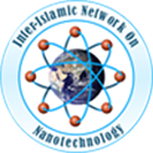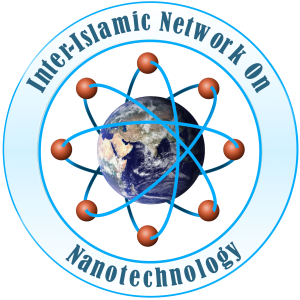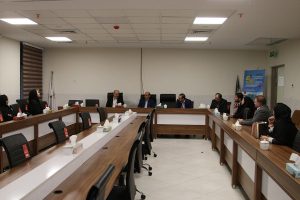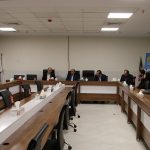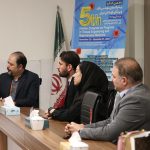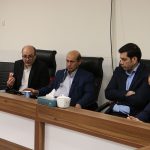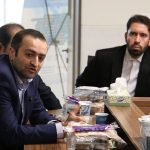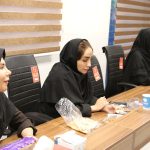The Strategic Council of the 5th Iranian Congress on Progress in Tissue Engineering and Regenerative Medicine, in its first meeting prior to the event, approved priorities and practical strategies with an emphasis on the mobilization of regulatory bodies, strengthening commercialization, and confronting unscientific advertising.
According to the ISMI Public Relations, the 5th Iranian Congress on Progress in Tissue Engineering and Regenerative Medicine will be held from November 29 to December 1, 2025 at the Razi International Conference Center of Iran University of Medical Sciences, in collaboration with INN.
The Strategic Council’s planning indicates that one of the fundamental challenges in converting research achievements into products is the lack of coordination between universities, knowledge-based companies, and licensing mechanisms. Therefore, regulatory and commercialization expert panels are planned during the congress. Representatives from the Food and Drug Administration, the Inspection Office, licensed companies, and clinical specialists will also be invited to clarify and follow the “Research → Regulation → Production → Market” pathway.
Council members expressed serious concern regarding exaggerated advertising and invalid commercialization in the fields of exosomes and certain cellular products. The council also considered the presence of reference laboratories, drafting clear guidelines, and publishing reliable information essential to safeguard public health and scientific credibility. The organizers noted that without such transparency, there is a risk of spreading false claims and creating uncontrollable markets, which could undermine public trust and scientific capacity.
The three-day congress will include a series of scientific sessions, seminars, specialized workshops, and a side exhibition. A special symposium titled “Exosome Therapy: Opportunities and Challenges” has been planned as one of the central events. The thematic content listed in the official congress poster includes stem cells, skin, aesthetics and wound healing, musculoskeletal system, soft tissue regeneration, women’s health and obstetrics, reproductive biology, exosomes and cellular derivatives, biomaterials, cell and gene therapy, nervous system, and special senses.
The Strategic Council also emphasized strengthening the student section and increasing the participation of graduate and international students. Members suggested organizing special panels and workshops for students and foreign scientific representatives to enable them to act as scientific ambassadors in expanding international collaborations. Furthermore, international capacity-building through regional networks and engagement with international cooperation organizations such as COMSTECH and its networks was proposed as a strategy to enhance scientific exchange.
In operational decisions, the secretariat was tasked with keeping the Strategic Council active after the congress to continuously review outcomes and plan for future sessions in a practical and ongoing manner. The preparation and publication of a review booklet on the global and domestic status of cell therapy and exosomes, serving as an informational reference and a tool against false claims, was also approved.
Attending the Strategic Council meeting on Advances in Tissue Engineering and Regenerative Medicine of Iran were Dr. Mohammad Amir Amirkhani, Deputy Director of International Cooperation, Ministry of Health, Treatment, and Medical Education; Dr. Saeed Mehrzadi, Head of the Office of Inspection, Performance Evaluation, and Complaint Response, Food and Drug Administration; Dr. Mohammad Taghi Joghataei, Congress President; Dr. Seyed Mohammad Amin Haramshehi, Executive Secretary of the Congress; Dr. Ali Karimi Morid, President of the Islamic Strategic Management Institute and executive organizer of the congress; representatives of knowledge-based companies; and a group of physicians, researchers, and professors from the Department of Tissue Engineering and Applied Cellular Sciences.
According to the official congress poster, the deadline for submitting articles and abstracts is November 6, 2025, and attendance at the congress is recognized as continuing education credit. The organizers announced that national and international experts, professors, and reputable domestic and foreign companies will attend the side exhibition, alongside specialized workshops. Interested participants can register and submit their work via the official congress portal at pterm.ir.
The Strategic Council and congress organizers stated that if scientific structures, regulatory systems, and commercialization mechanisms are strengthened in alignment, the Fifth Congress could not only showcase research achievements but also pave the way for the safe industrial utilization of emerging technologies and play an effective role in developing the knowledge-based economy and enhancing public health.
Notably, the INN Network is an international platform for leveraging the power of science and technology to support inclusive empowerment. The Network strives to provide a dynamic platform for countries to achieve growth, progress, and a knowledge-based economy by fostering collaboration between elites, professors, researchers, universities, research institutes, and knowledge-based companies.
This international platform is one of the thirteen scientific networks affiliated with COMSTECH, and it is hosted by the MERC under the MSRT of Iran.
